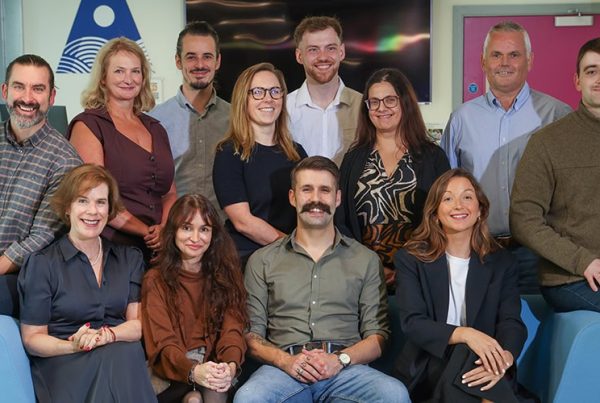
Jenni Timony is a past New Frontiers Programme Manager and, more recently, the founder of her own startup – FitPink. In a wide-ranging conversation, we explored Jenni’s three decades of entrepreneurial experience, and how it has shaped her approach to her new business.
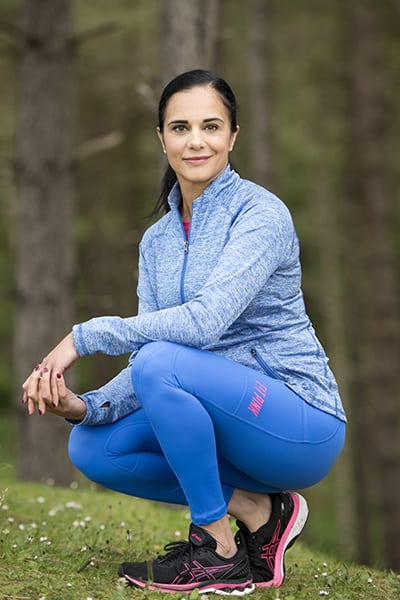
Jenni Timony, former New Frontiers Programme Manager and founder of FitPink
Based in Donegal, FitPink is an activewear business selling functional fitness clothing for women. The company takes a women-focused approach to product development: designed for women and run for women. Starting off with leggings and sweatshirts, Jenni soft-launched the company in 2019, fitting the work around her day job at the Innovation Centre in ATU – Sligo Campus. In fact, she didn’t work full-time on FitPink until November the following year.
The business had its full launch in January 2020, eight weeks before the pandemic hit. Jenni feels that the changes in lifestyle and shopping habits caused by Ireland’s lockdowns probably accelerated the growth of the startup by two years. It brought people into ecommerce that previously would not have bought online, meaning the brand got in front of people much faster than might have happened otherwise. Luckily, these customers also proved to be very loyal.
But it’s a myth to think that if you just launch a website, you can simply sit back and watch the sales pour in. FitPink’s success to date is not accidental. What learnings from previous ventures did Jenni bring to this business? How did she get here?
An early introduction to business
Born in Ireland to an Irish father and Indian mother, Jenni’s family immigrated to Australia during the 1980s recession. She attended high school in Australia and then returned to Ireland for university. Unfortunately, the family’s time living abroad meant that Jenni would have to pay ‘international student’ fees. These being out of reach, she decided to work instead and became self-employed at the age of 18 – starting off with a café and later moving into pre-packed food.
The food company made sandwiches, which were distributed across the country into schools, hospitals, airlines, and retail. With 35 full-time employees, this was a challenging business from the start.
“A mistake that many entrepreneurs make, that I made myself, is falling into a business. You see an idea, you decide to jump in and do it, and from that point you are operating from a position of blind faith rather than informed decision-making. You haven’t researched the market or the industry. I made that some error myself with the sandwich business.
It was a situation where there was demand for the product and very little competition (apart from one publicly listed company, Kerry Group). I just saw this as an opportunity to compete, but what I should have been asking myself was ‘Why are there no competitors in this sector?’ Some of the reasons might have been that food products are very low-margin, have a short shelf-life, are capital- and labour-intensive… It’s really difficult to make money in that kind of business. If you look at the big companies that make products like these, you’ll see that the profit margins are slim to none.
That’s the kind of learning that I always advise other entrepreneurs to take on board at the very start. Do the cold research. Don’t fall in love with the idea until you’ve really looked into it!”
Market research and product-market fit are essential for a business to succeed. Some of the most famous companies in the world took years to find their sweet spot. Even if you’re already weeks or months into your idea, it’s always worth stepping back and doing that research. If you decide not to go ahead, that’s still a good decision.
Lessons from recession
Jenni’s sandwich business stayed the course despite the challenges. But when the last recession hit, it became an early casualty. The company had always ploughed turnover back into the business, meaning there were no cash reserves in place to help cushion the effects of the downturn. It’s one of the common reasons that businesses fail when hit by external or internal shocks; lack of cash is a risk factor for any business – regardless of size or age.
Jenni is adamant about operating on data and not gut instinct. This means research at the very start of the business, but also continually exploring the data in the business and looking into other ways of doing things as the years go by. One example she gives is Facebook Ads. These would have been a go-to for almost any B2C company a few years ago, but given they are universally in decline now, it’s crucial not to be overly reliant on them as a sales pipeline and start experimenting with ads on other channels.
“It’s really important not to get fixated on what’s working for you now, because that won’t necessarily be what works for you next year. This requires continuous research and keeping your eyes open. People have a tendency to assume they know who their customers are, but you must remember to keep researching them and listening to them. And don’t forget to also look outside of that circle to who else might be a good customer or what trends are coming along that your brand might be a good fit for. It’s about being open to opportunity and open-minded – that’s what we call the ‘growth mindset’. I think it’s important to make sure the whole team has that growth mindset.”
Every sector and industry has its opportunities and pitfalls, but it’s important to understand that these cannot be blindly applied, and a good entrepreneur will look at their specific business and context when making decisions. Start with your goals and establish what kind of business you want to run – then work back from there to decide how this will play out in the day-to-day operations of the company. What is different at FitPink given Jenni’s experience working in and advising successful businesses?
A recipe for success
“I was careful not to outsource customer service or fulfilment. Lots of business owners might see these as obvious overheads to optimise through a third party, but I would argue that these are part of the customer experience and therefore core to the business. I don’t see many businesses with 98% un-incentivised five-star reviews that have also outsourced their fulfilment.
It’s said that you can do things when you’re small that you won’t be able to do when you scale, and we’re holding on to doing these things for as long as we can – at FitPink, customer queries and fulfilment are completely manual. I don’t know if we’ll be able to do that when we are selling into multiple other countries and languages, but we can for now and that’s vital.”
There’s a lot of advice out there about outsourcing everything you can and automating every possible process within the business, but it isn’t right for everyone. Purpose-driven businesses and those that leverage values-based marketing have been championing approaches like Jenni’s for some time. A good rule of thumb is to outsource strategically and in a way that gives you good levels of control. For cash-strapped startups, it’s a balancing act between operational effectiveness and affordability.
“When you do need to outsource something, staying involved and understanding the ins and outs of what you’re asking for is important. Marketing is a good example; not all agencies can deliver the kind of value that a startup entrepreneur is looking for as agency fees are quite high and the return you can expect from some of the activities often isn’t there. However, if you’re able to put in as much effort or time as the agency, you often get much better results. If you find an agency that is transparent and happy to work in partnership with you, this can be much more productive.”
While the pandemic proved to be an unexpected boon for FitPink, the startup is now closing its third ‘proper’ year in business. In a reversal of the usual startup timeframe, Jenni sees the coming year as offering the biggest challenge so far, with the economic downturn and cost of living crisis presaging a tougher market for the company.
Focus on your core values
External shocks are always easier to navigate when a startup is built on strong foundations. Jenni’s focus on customer service means that the people who buy FitPink products are passionate about them and help spread the word. The team sees this play out in all kinds of ways – for example, if they get a sale in a new area geographically, they see a mushrooming of sales in that same area six or eight weeks later. The company’s quality and environmental credentials also factor in brand loyalty.
“We’re the opposite of fast fashion. While we don’t use ‘recycled polyester’ because it’s not a very technical fabric – we opted instead for a high-quality product at an affordable price. I think that’s important in the current climate. We’re the same quality as our international competitors but at half the price, and right now that’s very important to people.
From the day we started, we used biodegradable packaging (it decomposes at the same rate as a banana skin). Competitors have taken our lead and adopted that since, and I’m glad to see it because that’s great for the planet. Since day one, we’ve supported Plan International – one of the largest international child-centred development organisations. Even through we’re just a tiny business finding our way in the world, I believe that we all have an impact. That’s the power of compounding. It would be great if all startups had that attitude.”
FitPink plans further growth in the Irish market and is moving into the UK market. Jenni intends taking it one step at a time so that she maintains control over those things that are so important to the brand, such as value and customer experience. She will keep operations in Ireland for as long as possible, rather than distributing the team too early. It’s a sector that’s full of opportunity, and FitPink has already proved it can gain traction with its winning combination of quality and comfort without compromise!
- Find out more about FitPink activewear on their website and follow them on Instagram.
About the author

Scarlet Bierman
Scarlet Bierman is a content consultant, commissioned by Enterprise Ireland to fulfil the role of Editor of the New Frontiers website. She is an expert in designing and executing ethical marketing strategies and passionate about helping businesses to develop a quality online presence.
Recent articles

Raise Your Startup’s Visibility & Credibility By Entering These Competitions

Founder Perspectives: Lessons From Building Businesses In Sustainability

Tech Startups In The Age Of AI: Alumnus Paul Savage On Speed, Quality & Risk
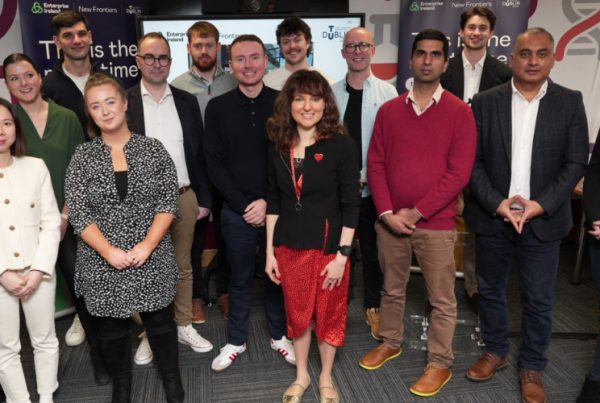
Fourteen Startup Founders Graduate From Phase 2 Of New Frontiers In Tallaght
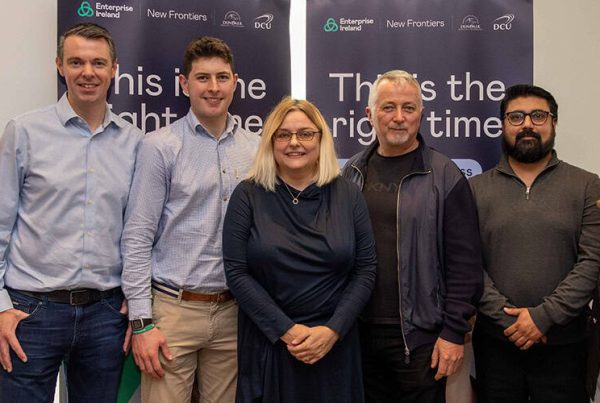
Eleven Founders Graduate From New Frontiers In The Border Mid-East Region

Laying The Right Groundwork Helps Startups Prepare For Export Success
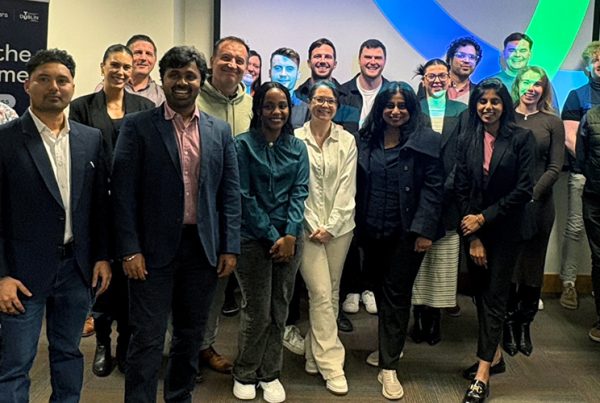
Startup In Dublin: Learn More About New Frontiers On TU Dublin’s Grangegorman Campus
